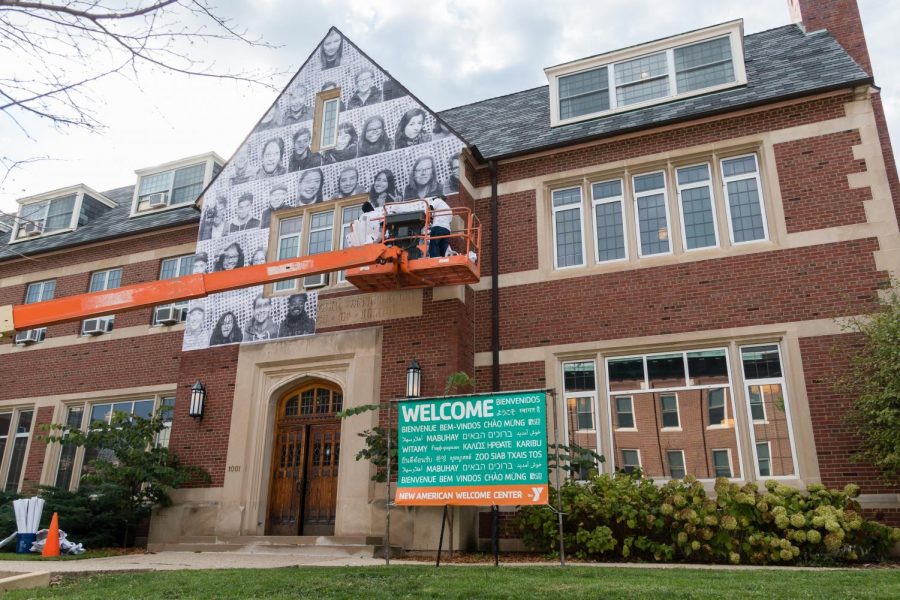Students submit comments to oppose changes to “public charge” rule
The New American Welcome Center located inside the University YMCA. The proposal will be open for a public comment period until Dec. 10.
Nov 30, 2018
The New American Welcome Center hosted a workshop Tuesday at the University YMCA to encourage public comment and awareness of a proposed change to immigration policy, which could potentially affect international students.
The proposal, released by the Department of Homeland Security in November, would expand the criteria used by immigration officials to rule immigrants a “public charge,” a designation which can increase the likelihood of an immigrant being denied a renewed visa or green card.
Zoë Foote, immigrant services coordinator for the New American Welcome Center, said “public charge” is an already existing classification used by immigration officials to describe a person dependent on government or public assistance for survival.
Currently, people using public cash assistance to supplement income or require long term hospitalized care at government expense are subject to the rule, according to U.S. Citizenship and Immigration Services.
The proposal would majorly expand the criteria of the “public charge” test to include Supplemental Nutrition Assistance Program benefits, housing vouchers and Medicaid, greatly increasing the number of immigrants who could be considered a public charge, Foote said.
Get The Daily Illini in your inbox!
If this proposal goes through, Foote said international students could be greatly impacted by the changes in criteria when being evaluated for a student visa.
“If they are applying for a visa to get in, but they fall under that criteria, or an immigration official thinks that in the future they might need food stamps because of their income, they might be denied a visa,” Foote said.
Foote said people have already approached their office, afraid to receive assistance from government programs, even if doing so would not endanger their current or future immigration status.
With these changes, immigrants are not secure even if they have been issued a visa in the past, Foote said.
“Even if you got a visa at one point, if you have to renew, they put you under this test again,” Foote said. “If you are found to be a public charge, then you could be denied and not be able to come back and finish your degree.”
The proposal is open for a public comment period until Dec. 10, and Foote said the New American Welcome Center organized their workshop to encourage the campus community to take part.
Foote gave a presentation explaining the changes to the “public charge” rule and how to submit a comment to the Federal Register, while students and other community members worked on their comments in the audience.
Karen Hidalgo, junior in the School of Social Work, said she chose to oppose the proposal, because she has seen the people that will be affected
“I’ve come from a mixed status family, and worked with the immigrant population through community service and things like that,” Hidalgo said. “I feel like years and years of people are going to be affected by these kind of laws, not only them but their families as well.”
Hidalgo said she hopes they can garner enough support to oppose the changes, but she doesn’t think the issue has reached enough of the public.
“An ordinary person is not going to know about this. How are we supposed to be putting our voices into it, if people don’t even know that there is a portal where we can put our voices,” Hidalgo said.






